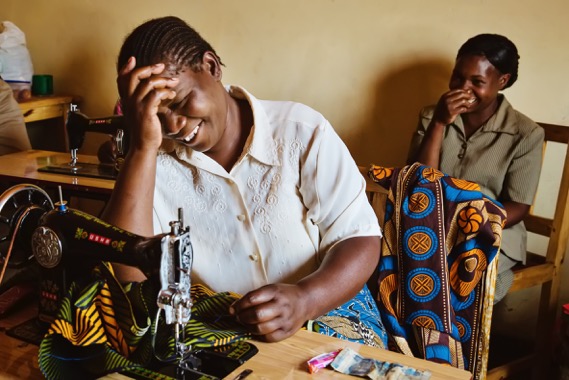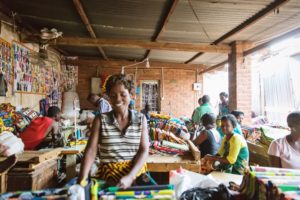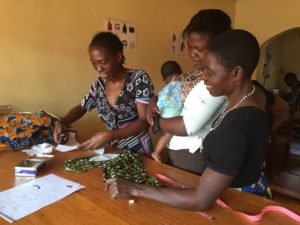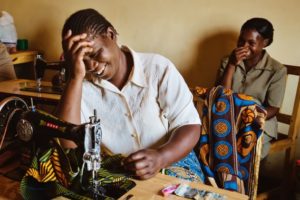Having worked in the two thirds world in developing economies, Paola Masperi founded Mayamiko in 2008 as a charitable project with the aim of turning it into a sustainable business. Patterning with artisans in Malawi, Masperi was keen to take a holistic approach in providing individuals with opportunities through education, skills training and access to finance, in a way that didn’t force them to be dependent on aid. This, combined with an interest in fashion and creative artisan skills and techniques, is how Mayamiko came into existence.
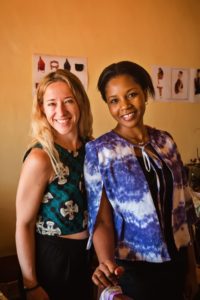
Based in the outskirts of the Malawi capital Lilongwe, Mayamiko has a workshop, or Fashion Lab as they like to call it, along with a training center in the middle of the local community. Through the training center, the label provides tailoring and sewing training as well as embroidery and other artisanal skills to disadvantaged women from the local community. In addition to this, financial education and entrepreneurship training is provided to equip the graduate with the tools to succeed in life. At the end of their training, the graduate can apply for a grant to get a sewing machine and start a business of their own or they can work with the Mayamiko fashion label. The women bring a variety of skills and recently one of the new trainees taught the others how to make up-cycled flip-flops made out of old tires, scrap leather and local beads.
The local artisans and tailors are given as much freedom to experiment as possible, however the design for the collection is pulled together by Masperi and is a combination of elements from current 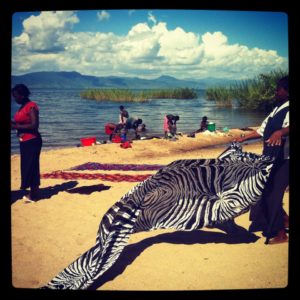
The Mayamiko fashion label places orders for products through the lab, all of with are paid at a fair price, ensuring that the employees of the lab receive good salaries and the benefits they need in terms of financial, job and health security. The label also donates part of its profits to the charity directly, allowing for new programs and activities to be developed. As is often the case for many brands and producers in developing economies, access to raw materials remains a challenge for Mayamiko. As Fair Trade standards aren’t in general practice in Malawi, buying certified materials locally is tricky and Mayamiko has to import fabric that is fair trade certified.
A zero waste policy is very important to Masperi. Conscious of the waste produced in the factory along with items that might not have been sold, Mayamiko transforms and up-cycles the waste and these items into beautiful products through its Rebirth Collection. “There’s joy in new beginnings!”, says Masperi.
Every full of ideas, Masperi has a number of exciting projects in the pipeline. These include a yoga inspired line; developing a batch of hand dyed fabric with the Malawi Council for the Handicapped for their accessories; another up-cycled collection and; developing a ‘Malawi Fashion Scouting” competition to help emerging talent. In addition to this, Masperi is looking into replicating their model to other countries, and expanding the range of skills taught beyond textiles, tailoring and sewing. “…while you keep you eyes on the horizon, the only way to get there is by keep taking one step at a time!”, says Masperi.
For more information about Mayamiko visit: http://www.mayamiko.com

